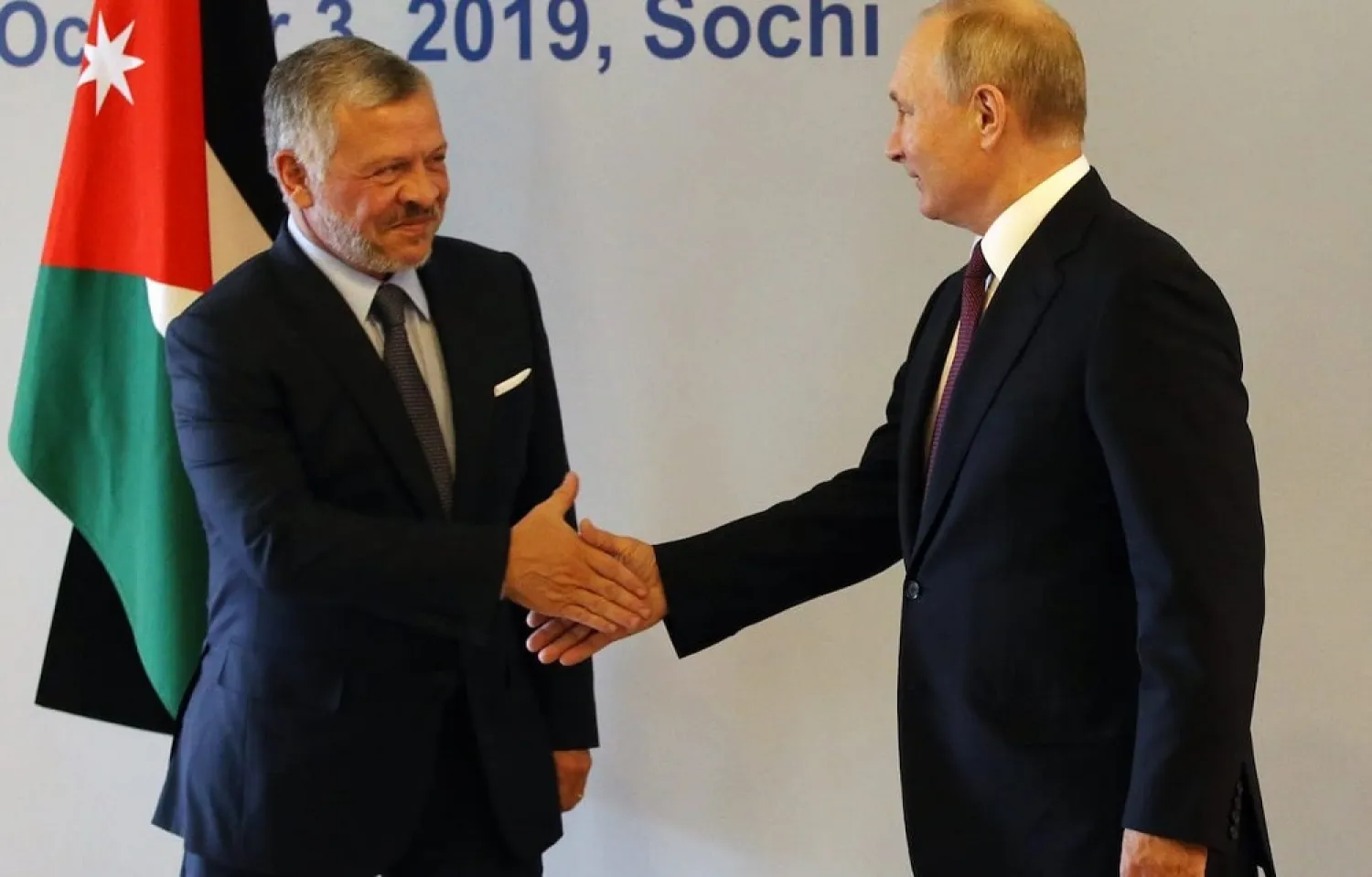Jordanian King Abdullah II is set to hold talks with Russian President Vladimir Putin in Moscow on Monday.
The monarch’s visit is taking place around a month after a trip he carried out to Washington where he met with President Joe Biden and officials from his administration.
Jordanian sources predicted that the developments in southern Syria, specifically Daraa, will figure high on King Abdullah and Putin’s agenda.
The region, neighboring Jordan, has witnessed a spike in tensions and clashes as the Syrian regime prepares an offensive against remaining armed opposition factions.
King Abdullah and Putin are likely also set to discuss the smuggling of weapons and drugs from Syria to the Kingdom after numerous illicit operations were busted.
Amman and Moscow often cooperate in security coordination in Syria and its border. Jordan has offered intelligence information about the movement of several armed militias in Syria, including factions loyal to ISIS, as part of counter-terrorism efforts.
Jordanian political sources told Asharq Al-Awsat said the Moscow talks will also tackle several bilateral issues, including developments in the Palestinian territories and the importance of establishing fair and comprehensive peace based on the two-state solution.
Economic, investment and security cooperation is also on the agenda.
The sources said Jordan was mulling providing necessary aid to support the Lebanese state and military in order to preserve Lebanon’s security, stability and unity. Jordan has recently expressed readiness to help provide Lebanon with gas and electricity as it grapples with a crippling fuel and electricity shortage.
King Abdullah and Putin had last met in October 2019 in the Russian resort city of Sochi.









